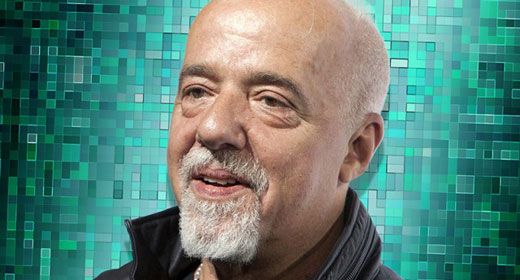by Rabbi Rami Shapiro: While I was speaking with a group of spiritually independent folks (people with no specific religious affiliation)

about a new Eastern Illinois University survey showing spiritually independent Americans outnumbering Evangelical Christian Americans 23.1% to 22.5%, one woman said, “I grew up Southern Baptist with a Southern Baptist dad. The more I learned about other faiths, the more I saw through the truth claims of my religion to see the Truth that is greater than religion. I guess it’s true that seeing is believing, right?”
Wrong. Seeing is the opposite of believing. You believe only what you cannot see. I don’t believe I have a dog, I see my dog. I may believe my dog is outside peeing, but unless I go outside and look, I don’t know that for certain. That’s why I say I believe she is peeing rather than I know she is peeing. The same is true of God. (Not that God is peeing mind you … that would be terrifying!) I don’t believe in God. I see God.
Not everyone wants to see God, and for good reason: the God you see isn’t the God in whom you were taught to believe, and this, as Jesus taught, is troubling to say the least: “Let those who seek keep seeking until they see. When they see, they will be troubled. When they are troubled, they will triumph over all” (Gospel of Thomas, Logia 2).
In and of itself, seeking God isn’t troubling. Seeking God involves working within a system and working within a system is comforting. Seeing God is troubling because seeing God requires stepping outside all systems, and working outside a system is troubling. No, it is terrifying. It isn’t that “seeing is believing,” it’s that seeing shatters believing. So far this may be obvious to you, but what shall we make of Jesus’ claim that those who see will “triumph over all”?
When you see God as the nondual reality “in Whom we live and move and have our being” (Acts 17:28), you will triumph over and hence be free from every system, every thought, every feeling, and every person who seeks to blind you to seeing and bind you to believing. Seeing isn’t believing; seeing is freeing.
Most of us don’t want to be free. We want to be comfortable. If this is you, my advice is simple: listen to the prophet Micah: “Do justly, act kindly, and walk humbly with your beliefs about God” (Micah 6:8). If, however, you want to see, don’t stop when the troubles start.
To me, religions are like languages: no language is true or false; all languages are of human origin; each language reflects and shapes the mindset of the civilization that speaks it; there are things you can say in one language that you cannot say or cannot say as well in another; and the more languages you know, the more nuanced your understanding of life. Judaism is my mother tongue, yet in matters of the spirit I strive to be multi-lingual. In the end, however, the deepest language of the soul is silence.
Rabbi Rami Shapiro is an award-winning author, essayist, poet, and teacher. His spiritual advice column, “Roadside Assistance for the Spiritual Traveler,” addresses reader questions pertaining to religion, spirituality, faith, family, God, social issues, and more.
His newest book is The World Wisdom Bible.








































